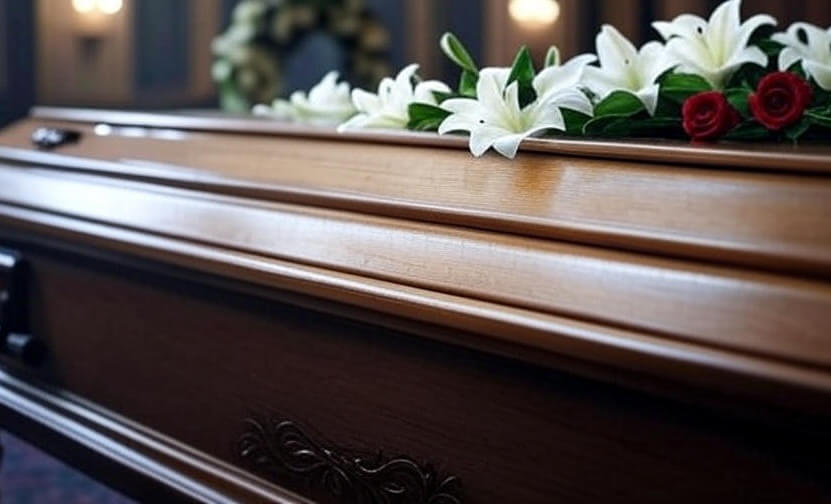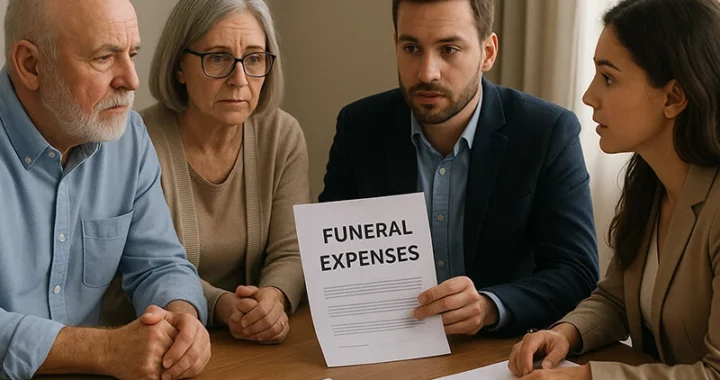What is the Biggest Expense of a Funeral?
When a loved one dies, families face hard choices. They must plan a funeral while dealing with grief. Money becomes a big worry. What costs the most at a funeral? The answer may suprise you.
The Casket Takes the Biggest Bite
The casket is the single largest expence at most funerals. In Europe, families spend between €2,000 and €8,000 on caskets. This represents about 35% of total funeral costs.
Maria from Spain learned this the hard way. When her father died, she visited a funeral home in Madrid. The staff showed her caskets ranging from €1,500 to €12,000. She chose a mid-range option for €4,500. This was more than her monthly salery.
Why Caskets Cost So Much
Funeral homes mark up caskets by 300% to 500%. A casket that costs €1,000 to make sells for €3,000 to €5,000. The funeral industry knows families are vulnerible during grief. They use this to their advantege.
The Funeral Consumer Alliance (FCA) reports that casket prices have risen 15% each year since 2018. This trend continues across the EU & UK.
Other Major Funeral Expenses
After the casket, these costs add up quick:
Professional Services: Funeral directors charge €1,200 to €3,000 for their work. This includes paperwork, scheduling, and coordination.
Viewing and Ceremony: Renting funeral home space costs €800 to €2,500. This depends on location and amenites.
Transportation: Moving the body and organizing the funeral procession costs €600 to €1,200.
Pierre from France faced this reality. His mother’s funeral in Lyon cost €8,500 total. The casket was €3,800. Professional services were €2,200. The ceremony venue cost €1,500. Transportation added €1,000.
## European Examples Show the Pattern
Data from across Europe confirms these trends:
- Germany: Average casket cost is €3,200 out of €7,800 total funeral expenses
- Italy: Caskets average €2,800 out of €6,500 total costs
- Sweden: Casket costs reach €4,100 out of €9,000 total expenses
The European Funeral Association (EFA) studied 50,000 funerals in 2023. They found caskets account for 32% to 42% of all funeral spending.
Ways to Reduce Casket Costs
Smart families can cut casket expenses without sacrificing dignity:
Shop Around: Casket prices vary greatly between funeral homes. Compare at least three options.
Buy Online: Internet casket retailers sell the same products for 50% less. Federal law requires funeral homes to accept outside caskets.
Consider Alternatives: Cardboard caskets cost €300 to €600. Wicker caskets range from €800 to €1,400.
Anna from Germany saved €2,000 this way. She bought her husband’s casket online for €1,800 instead of paying the funeral home €3,800.
The Emotional Factor
Funeral homes understand human psychology. They place expensive caskets first. Sales staff suggest that cheap caskets show disrespect. This creates guilt and pressure to spend more.
“We want the best for our loved ones,” says Dr. Sarah Mitchell, a grief counselor in London. “But expensive caskets don’t honor the dead more than modest ones.”

Facts About Funeral Industry Profits
The funeral business generates €25 billion yearly in Europe. Casket sales account for €8.7 billion of this total. The industry enjoys profit margins of 65% to 75%.
Large funeral companies own multiple funeral homes in each city. This reduces competition and keeps prices high. Service Corp International (SCI) owns 400+ funeral homes across Europe.
Making Smart Choices During Grief
Losing someone hurts. Making financial decisions while grieving is hard. But families can protect themselves:
Set a Budget: Decide spending limits before visiting funeral homes.
Bring Support: Take a trusted friend who can think clearly about money.
Ask Questions: Request itemized price lists. Compare total costs, not just individual items.
Roberto from Italy wished he had done this. He spent €9,500 on his wife’s funeral without comparing prices. Later, he found the same services for €6,200 at another funeral home.
Conclusion
The casket remains the biggest funeral expense across Europe. It often costs more than rent or car payments. Understanding this helps families plan better and avoid overspending during difficult times.
Remember that honoring the dead happens through memories and love, not expensive wood and metal. A funeral should celebrate life without creating financial hardship for the living.

